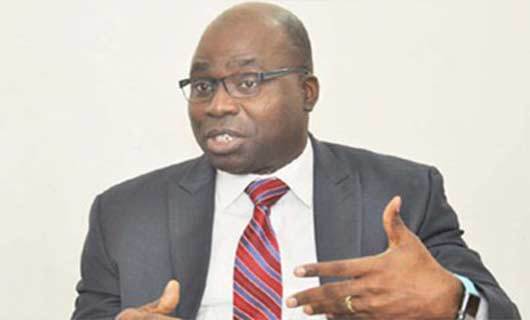The ‘looters lists’ released by the Federal Government contained names of people from whom government recovered assets from, Prof. Bolaji Owasonoye, Presidential Advisory Committee against Corruption (PACAC), has said.
Owasanoye said in an interview with the Correspondent of the News Agency of Nigeria (NAN) in New York that they were not people who had been convicted.
He said: “The public has been saying we want to know the people from whom you have been recovering assets, not necessarily the people who have been convicted.
“And the government put out information to say we’ve recovered assets from these people and then there is this hullabaloo.
“Now, as you know, one of the very successful areas of government anti-corruption agenda is in asset recovery.
“Some by court proceedings, many by voluntary returns. People know that investigations are going on, it would get to them, they voluntarily release money”.
“We know as a fact that people come and say look, the way this thing is going is coming to me, I want to return money. So that’s what is going on”.
According to him, however, people think that you can only mention somebody’s name who has been convicted.
He wondered why people’s names from whom assets were recovered, though pending prosecution, felt their names could not be included.
“The government has not said these are the people that have been convicted.
“Of course, the fact that you called them looters; if people return assets for which they cannot account beyond their legitimate means, how do you explain that situation?
The PACAC scribe said the Federal Government had not described the list as those who had been convicted or those who would be convicted.
“It’s a list of those from whom public assets have been recovered; that’s it. My understanding is that government released the list of people from whom assets have been recovered.”
He said Nigeria and the entire international community recognised that corruption was the singular most destructive obstacle to development.
He regretted that the people did not know that the reason the country was not making progress was because of different shades of corruption.
“The reason there is no drug in the hospital, schools are not functioning, roads are not good, unemployment is high, extractive resources are not adding value, is because of corruption.
“So if you don’t deal with it, how are you going to take care of your governance and development aspiration. You have to deal with it,” he said.
Owasonoye said a number of major infrastructure development projects that had been abandoned or were not making progress in the years of boom were now making progress in the years of scarcity.
“Whether it is road project, power project, rail project, water projects, they are all over the place but nobody is looking at that; in the years of boom, they were abandoned.
“If you look at the budgetary process over the years, some of those projects have appropriations for them every year for like 10 years but they never moved up to 10 per cent.
“In three years under President Buhari, some of those projects have moved up to 40, 50 60 per cent of progress and there is scarcity,” the PACAC scribe said. (NAN)

